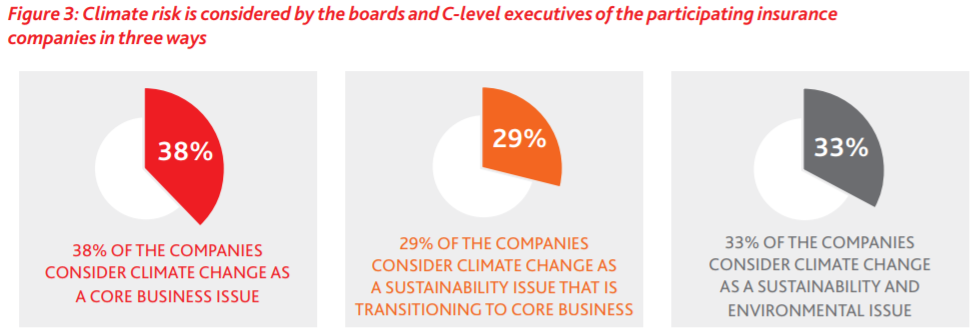The political turmoil in North America around climate change and measures to attempt to reduce the level of CO2 in the atmosphere may lead you to the mistaken conclusion that there is no common ground on carbon.
 |
| Carbon based energy |
The book Carbon by Kate Ervine declares that carbon is the political challenge of our time.
 |
| Carbon by Kate Ervine |
While critical to supporting life on Earth, too much carbon threatens to destroy life as we know it, with rising sea levels, crippling droughts, and catastrophic floods sounding the alarm on a future now upon us.
This article outlines four areas of common ground in concern over carbon
- Capitalism and Entrepreneurs in Alternative Energy
- Support for re-election of politicians
- Recognition of the aversion of some to government intervention in their lives
- The Insurance Industry is making ‘Significant Contributions’ in climate change
Some entrepreneurs are turning carbon dioxide into fuels.
 |
| https://i.guim.co.uk/img/media/5893d36bcd3c9b8178e76611f8706508fd091973/0_0_4921_2953/master/4921.jpg?width=620&quality=85&auto=format&fit=max&s=5ea5478563fbf41e58d67a43f5970ff8 |
Mark Harris of The Guardian writes:
“Technologies to capture CO2 from the air, like Climeworks’ units, have the potential for the sort of steep price declines that we’ve seen from solar, wind, and batteries, which are also factory manufactured products,” says Matt Lucas of the Center for Carbon Removal, a non-profit dedicated to curtailing climate changeGetting people to the polls will help make politicians care about climate change.
 |
| https://11bup83sxdss1xze1i3lpol4-wpengine.netdna-ssl.com/wp-content/uploads/2016/04/Voting.jpg |
D.R. Tucker writes about the strategy of veteran political consultant, Nathaniel Stinnett to identify, register and motivate climate-concerned citizens to make their voices heard every Election Day.
“Then, in early 2014, my research revealed some really surprising data: namely, that there are actually tens of millions of Americans who deeply care about the environment as one of their top political priorities…but these people are awful voters, so they never show up in likely voter polls and they’re never targeted by political campaigns. This made me realize that the environmental movement may not have a ‘persuasion’ problem; instead, we may just have a ‘turnout’ problem. And that’s good news because getting an already-persuaded environmentalist to vote is far easier (and cheaper) than persuading a non-environmentalist to begin caring about the environment.”
Faculty at Harris School of Public Policy in Chicago have asked “What Would Milton Friedman Do About Climate Change?
 |
| https://upload.wikimedia.org/wikipedia/commons/thumb/2/20/Portrait_of_Milton_Friedman.jpg/220px-Portrait_of_Milton_Friedman.jpg |
Jeff McMahon writes for Forbes Magazine that Steve Cicala, an assistant professor in the Harris School, argued that the market for energy operates without accounting for its full costs — without compensating people throughout the world who experience damages caused by the emission of greenhouse gases during the production of energy. But when a third party not participating in that exchange suffers costs without compensation, the market has produced a negative externality. (This situation for a market has not been supported by Friedman)
"It is theft," Cicala said. "That's a loaded term, but if anyone can come up with a better term for taking something from people without their consent and without compensating them, I'm happy to use that term."
The free market solution to this problem would be the creation of another market, Cicala and Greenstone said—a market in carbon.
Don Jergler writes in the Insurance Journal that the Industry is making 'Significant Contributions' to battle climate change.
The Geneva Association is putting forward three recommendations to accelerate the contributions of the industry to address climate change:
- Third-party stakeholders such as governments, policymakers, standard-setting bodies and regulators across sectors should work in a more coordinated fashion to address barriers that hinder insurers from scaling up their contribution to climate adaptation and mitigation.
- The insurance industry should continue to institutionalize climate change as a core business issue, expand its contributions towards building financial resilience to climate risks and support the transition to a low-carbon economy by collaborating with governments and other stakeholders.
- Governments and the industry should explore ways to support climate resilient and decarbonized critical infrastructure through the industry’s risk management, underwriting and investment functions.
Kate Ervine, at the end of her launch of her book "Carbon" commented on finding common ground in the struggle against increasing CO2 levels.
Entrepreneurs who are going to be successful in alternative energy, politicians who benefit from the support of concerned citizens who are urged to “turnout” at the polls, “Chicago school” economists of capitalism who want a carbon market to correct a negative externality in the energy market, and insurance companies who need to reduce the payout for catastrophic hurricanes, fires, coastal erosion, drought, and floods have common ground from which to work to reduce our addiction to a carbon based economy.
Entrepreneurs who are going to be successful in alternative energy, politicians who benefit from the support of concerned citizens who are urged to “turnout” at the polls, “Chicago school” economists of capitalism who want a carbon market to correct a negative externality in the energy market, and insurance companies who need to reduce the payout for catastrophic hurricanes, fires, coastal erosion, drought, and floods have common ground from which to work to reduce our addiction to a carbon based economy.
References
(n.d.). Kate Ervine (Author of Carbon) - Goodreads. Retrieved December 5, 2018, from https://www.goodreads.com/author/show/9842182.Kate_Ervine
(2017, September 14). The entrepreneurs turning carbon dioxide into fuels | Guardian .... Retrieved December 5, 2018, from https://www.theguardian.com/sustainable-business/2017/sep/14/entrepreneurs-turn-carbon-dioxide-into-fuels-artificial-photosynthesis
(2016, April 8). Step one to make politicians care about climate change: VOTE .... Retrieved December 5, 2018, from https://citizensclimatelobby.org/step-one-to-make-politicians-care-about-climate-change-vote/
(2014, October 12). What Would Milton Friedman Do About Climate Change? Tax Carbon. Retrieved December 5, 2018, from https://www.forbes.com/sites/jeffmcmahon/2014/10/12/what-would-milton-friedman-do-about-climate-change-tax-carbon/
(2018, January 25). Insurance Industry Making 'Significant Contributions' in Climate .... Retrieved December 5, 2018, from https://www.insurancejournal.com/news/national/2018/01/25/478540.htm
(n.d.). Kate Ervine (Author of Carbon) - Goodreads. Retrieved December 5, 2018, from https://www.goodreads.com/author/show/9842182.Kate_Ervine
(2017, September 14). The entrepreneurs turning carbon dioxide into fuels | Guardian .... Retrieved December 5, 2018, from https://www.theguardian.com/sustainable-business/2017/sep/14/entrepreneurs-turn-carbon-dioxide-into-fuels-artificial-photosynthesis
(2016, April 8). Step one to make politicians care about climate change: VOTE .... Retrieved December 5, 2018, from https://citizensclimatelobby.org/step-one-to-make-politicians-care-about-climate-change-vote/
(2014, October 12). What Would Milton Friedman Do About Climate Change? Tax Carbon. Retrieved December 5, 2018, from https://www.forbes.com/sites/jeffmcmahon/2014/10/12/what-would-milton-friedman-do-about-climate-change-tax-carbon/
(2018, January 25). Insurance Industry Making 'Significant Contributions' in Climate .... Retrieved December 5, 2018, from https://www.insurancejournal.com/news/national/2018/01/25/478540.htm

No comments:
Post a Comment